
AS I have explained in my earlier articles, my original aims of breeding from fertile GSF x canary mules was to test whether it was possible to introduce into a line of canaries a grey singing finch “song factor”, rather in the same way as the “red factor” had been captured in canaries from red hooded siskin x canary hybrids.
In the red-factor canary, the perpetuation of the red colour is not solely of the possession of red siskin genes, but also an interaction of these genes with environment: in this case, the presence of the precursor chemicals (carotenes) of red pigment in the canaries’ food.
In my project, the environmental factor in question is the first song that young birds hear, maybe as nestlings and some say even when they are still in the egg. I have been therefore as careful as I could to keep the exposure to cock canary song to an absolute minimum and, instead, try to indoctrinate them with recordings of birdsong – of GSF, linnet and skylark – that I personally find most pleasing.
So far, the results have been rather disappointing. None of the cock hybrids I’ve produced to date has come to match the enthusiastic, powerful song of pure GSF cocks. Of the two third-generation hybrid cocks produced from Scrappy and a Raza canary cock – despite my effort to dispose of the canary as soon as was practical – one still managed to learn the song of his father. The other, although it has a nice finch song without abrasive canary “brrrrrs”, is nevertheless a shy bird and rarely sings to entertain me. What I would like is an extrovert that pours out an uplifting finch or lark-like song.
This story is from the November 20, 2019 edition of Cage & Aviary Birds.
Start your 7-day Magzter GOLD free trial to access thousands of curated premium stories, and 9,000+ magazines and newspapers.
Already a subscriber ? Sign In
This story is from the November 20, 2019 edition of Cage & Aviary Birds.
Start your 7-day Magzter GOLD free trial to access thousands of curated premium stories, and 9,000+ magazines and newspapers.
Already a subscriber? Sign In
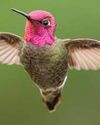
The World's Best-Known Hummingbird?
Intensively studied, the gem-like Anna’s hummingbird is a welcome visitor to the gardens of America’s most populous state: California. Bill Naylor investigates its life history
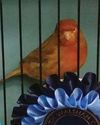
The charm of the English Cinnamon
Despite its long and complicated history, the true Cinnamon canary is still with us – in the hands of a tiny group of breeders. DONALD SKINNER-REID reckons it deserves wider appreciation
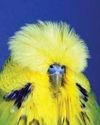
Spangles: a personal overview
FRED WRIGHT relates a budgie story of over-exploitation, consequent problems and abundant potential for the future

New converts to old breeds
Old and rare canaries have a reputation for adding fresh interest and challenge to the hobby. PETE HOOK and NICK JOY agree, and explain the birds’ charm to Dave Brown

Themed aviaries are a hit with the public at annual Stafford show
DECORATIVE AVIARY DISPLAYS from a CBS and an online bird keeping advice group were voted in the top three by visitors for the inaugural Stafford Aviary Competition.
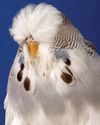
Pieds with potential
More than just a lesser variety, the dominant pied will introduce challenge and change into most studs, reckons CLIVE WAKEMAN. Here he discusses pairings to try and others to avoid

Club News
Welcome to the club and show pages – the bit that’s all about you Results: convention, specialist & rare and Breeder of the Year
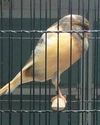
Canaries Month by Month:
With Christmas around the corner, BRIAN KEENAN is well into his winter programme, and reckons he might deserve a nice outcross
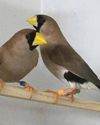
Smart Choice, Docile Nature
Dave Brown welcomes the masked grassfinch to his birdroom and shares advice on this lovely Australian species
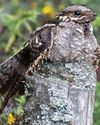
The truth about the ‘flying toad'
Odd local names and weird superstitions can’t hide the beauty and elegance of the nightjar, a species that has made a fascinating subject in a few zoo collections, reveals BILL NAYLOR